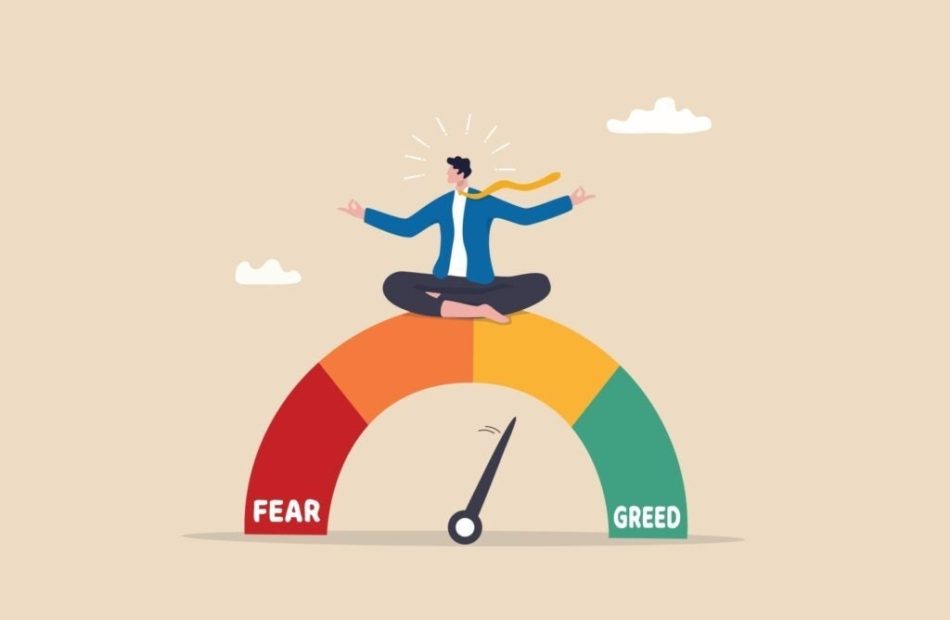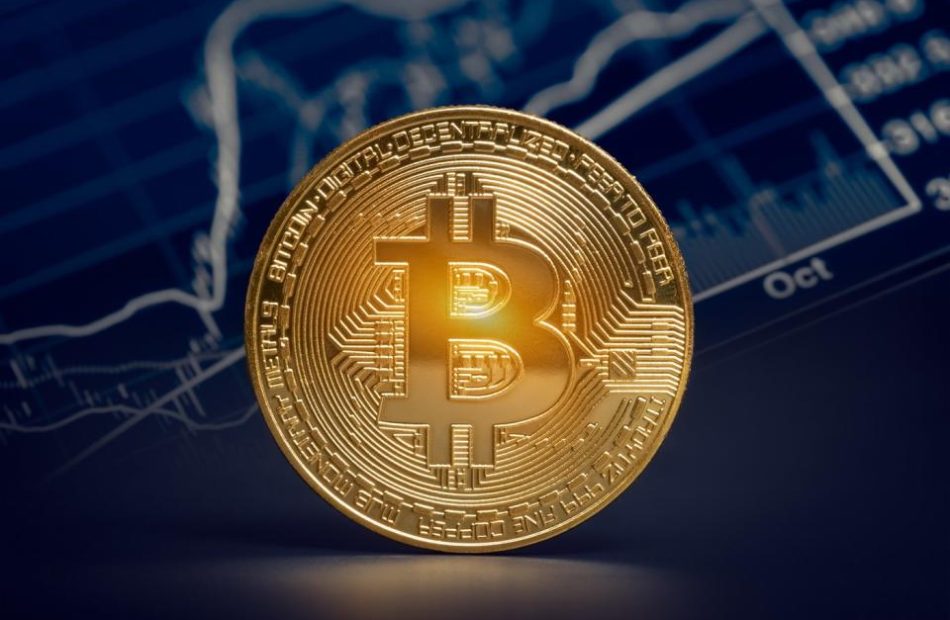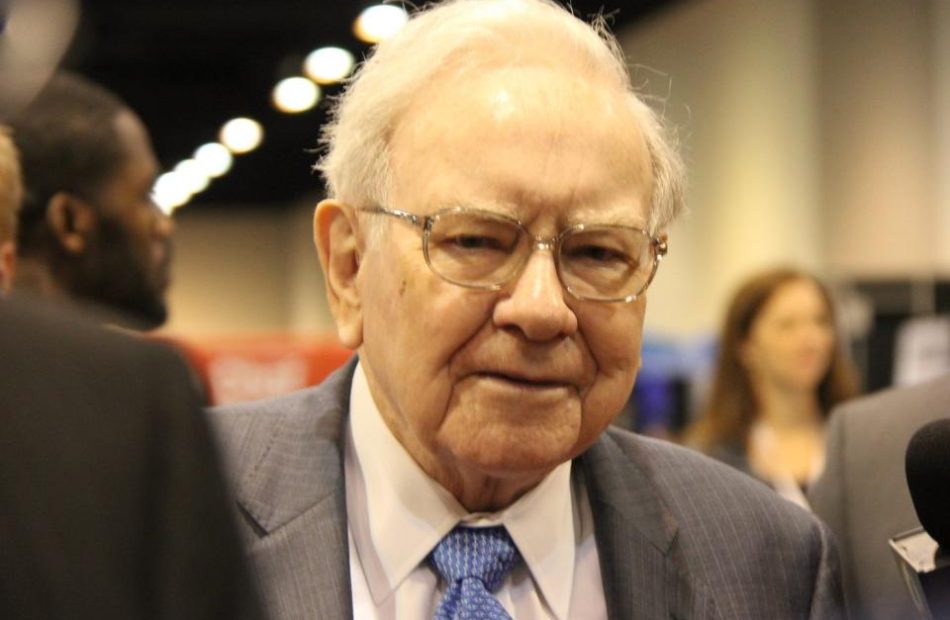Dow, S&P 500 Settle At Record High Levels, Record 6th Consecutive Week Of Gains: Fear Index Moves To 'Extreme Greed' Zone
The CNN Money Fear and Greed index showed an improvement in the overall market sentiment, while the index moved to the “Extreme Greed” zone on Friday.
U.S. stocks settled higher on Friday, with the Dow Jones index and S&P 500 jumping to fresh record highs during the session.
All three major indices recorded gains for the sixth straight week, with the Dow and S&P 500 gaining 0.96% and 0.85%, respectively. The Nasdaq, meanwhile, added 0.80% last week.
On the economic data front, U.S. housing starts fell by 0.5% from the previous month to an annualized rate of 1.354 million units in September. Building permits declined by 2.9% to an annual rate of 1.428 million in September.
Netflix NFLX shares jumped around 11% on Friday after the company reported better-than-expected third-quarter earnings. The Procter & Gamble Company PG posted upbeat quarterly earnings, while revenue missed estimates.
As far as the earnings season is concerned, over 70 S&P 500 companies have released quarterly results so far, with around 75% of those exceeding market estimates.
Most sectors on the S&P 500 closed on a positive note, with utilities, communication services, and real estate stocks recording the biggest gains on Friday. However, energy stocks bucked the overall market trend, closing the session lower.
The Dow Jones closed higher by around 37 points to 43,275.91 on Friday. The S&P 500 gained 0.40% to rise to 5,864.67, while the Nasdaq Composite rose 0.63% to close at 18,489.55 during Friday’s session.
Investors are awaiting earnings results from SAP SE SAP, Nucor Corporation NUE, and Logitech International S.A. LOGI today.
What is CNN Business Fear & Greed Index?
At a current reading of 75, the index moved to the “Extreme Greed” zone on Friday, versus a prior reading of 70.
The Fear & Greed Index is a measure of the current market sentiment. It is based on the premise that higher fear exerts pressure on stock prices, while higher greed has the opposite effect. The index is calculated based on seven equal-weighted indicators. The index ranges from 0 to 100, where 0 represents maximum fear and 100 signals maximum greediness.
Read Next:
Photo courtesy: Shutterstock
Market News and Data brought to you by Benzinga APIs
© 2024 Benzinga.com. Benzinga does not provide investment advice. All rights reserved.
Bitcoin Is Up 53% This Year, But This Cryptocurrency Is Doing Even Better
Bitcoin (CRYPTO: BTC) is the world’s biggest cryptocurrency. Its market capitalization of $1.3 trillion accounts for more than half of the market cap of the entire crypto market, which currently stands at $2.4 trillion.
The crypto industry went through a challenging bear market in 2022 following the collapse of a number of high-profile projects and exchanges. However, Bitcoin is up 53% this year, and it’s trading near a record high on the back of renewed positivity among investors.
That bullish sentiment appears to be spreading to all corners of the crypto market. Shiba Inu (CRYPTO: SHIB) is sitting on a year-to-date gain of 79%, so it’s doing even better than Bitcoin at the moment. It isn’t the first time this meme token has outperformed the industry leader, because it delivered one of the best gains in the history of financial markets in 2021.
However, here’s why investors shouldn’t expect Shiba Inu to outperform forever.
The financial industry is embracing Bitcoin, while shunning speculative tokens
Bitcoin is a decentralized cryptocurrency, which means it isn’t controlled by any single person or government. Supply is capped at 21 million coins, and it operates on the blockchain, which is an autonomous, reliable system of record. Therefore, many crypto enthusiasts consider Bitcoin a viable alternative to traditional money, because supply can’t be manipulated or “printed” to degrade its purchasing power.
However, adoption has been lackluster. Only 9,224 businesses worldwide accept Bitcoin as payment for goods and services, (according to Cryptwerk), and if people can’t spend it at their favorite stores, they don’t have much incentive to own it. Volatility might be one reason merchants are reluctant to enter the ecosystem — any currency that can plunge in value by more than 50% in a single year (as Bitcoin did in 2022), with the potential to rise unpredictably by a similar amount, makes cash flow management a nightmare.
As a result, many investors prefer to look at Bitcoin as a store of value, sort of like a digital version of gold. That use case received further validation when the U.S. Securities and Exchange Commission started approving Bitcoin exchange-traded funds (ETFs) earlier this year. Dozens of them have hit the market, and they give investors a safe, regulated way to park money in Bitcoin.
ETFs are creating new demand for the cryptocurrency, which is probably a key reason it’s trading near an all-time high. But the speculative end of the market hasn’t been so fortunate. Although Shiba Inu is up more than Bitcoin in 2024, it’s still down 78% from its all-time high, which was set during 2021.
Few avenues to new highs exist for Shiba Inu
Shiba Inu generated a return of 45,278,000% between Jan. 1, 2021 and Dec. 31, 2021, which could have turned a perfectly timed investment of $3 into over $1 million. Its spectacular collapse since then confirms that the incredible bull run was driven by rampant speculation rather than fundamentals.
As of this writing, just 989 merchants accept Shiba Inu as payment, so it’s faring significantly worse than Bitcoin in terms of adoption. That’s no surprise, since it’s far more volatile. It isn’t a very good store of value either, given its decline since 2021. So a Shiba Inu ETF probably wouldn’t receive much demand, nor is one likely to get regulatory approval.
The developer community is trying to create new use cases for the token, but progress has been limited. In 2022, a Shiba Inu metaverse was in the works which promised to give enthusiasts a way to spend their tokens within the digital realm, but it still hasn’t launched.
Developers did release Shibarium last year, which is a Layer-2 blockchain solution designed to make it cheaper and faster to transact with Shiba Inu tokens. The goal was to eliminate some of the clunkiness associated with the legacy Ethereum network upon which Shiba Inu is built, in the hope it would encourage more people to buy and spend tokens.
But Shibarium hasn’t really boosted adoption, nor has it bolstered the price of Shiba Inu tokens. The bottom line is this: Without widespread adoption, it’s going to be very hard for Shiba Inu to create (or maintain) value. Speculation isn’t enough to generate long-term returns, as proven by the token’s post-2021 performance.
Bitcoin is a safer bet than Shiba Inu, but investors have other options
Since ETFs have given financial advisors and institutional investors a legitimate avenue through which to buy Bitcoin, it’s probably going to be a safer investment than Shiba Inu from now on. However, an element of speculation will always be responsible for the performance of every cryptocurrency. This asset class doesn’t generate revenue or earnings, so investors only buy into it in the hope that other investors are willing to pay higher prices in the future.
In my view, it’s a much better idea to buy high-quality stocks instead. The benchmark S&P 500 (SNPINDEX: ^GSPC) is filled with them. The index has a stellar track record of delivering reliable returns since it was established in 1957, and there is an abundance of ETFs that make it easier than ever to track its performance.
While the S&P 500 will probably never soar by millions of percentage points in a single year like Shiba Inu did in 2021, it’s also far less likely to plunge 70% or more. When we look back on this moment in 20 years, I think investors who invest in the broader stock market today will have done much better than those who bought Shiba Inu (and maybe even Bitcoin).
Don’t miss this second chance at a potentially lucrative opportunity
Ever feel like you missed the boat in buying the most successful stocks? Then you’ll want to hear this.
On rare occasions, our expert team of analysts issues a “Double Down” stock recommendation for companies that they think are about to pop. If you’re worried you’ve already missed your chance to invest, now is the best time to buy before it’s too late. And the numbers speak for themselves:
-
Amazon: if you invested $1,000 when we doubled down in 2010, you’d have $21,285!*
-
Apple: if you invested $1,000 when we doubled down in 2008, you’d have $44,456!*
-
Netflix: if you invested $1,000 when we doubled down in 2004, you’d have $411,959!*
Right now, we’re issuing “Double Down” alerts for three incredible companies, and there may not be another chance like this anytime soon.
*Stock Advisor returns as of October 14, 2024
Anthony Di Pizio has no position in any of the stocks mentioned. The Motley Fool has positions in and recommends Bitcoin and Ethereum. The Motley Fool has a disclosure policy.
Bitcoin Is Up 53% This Year, But This Cryptocurrency Is Doing Even Better was originally published by The Motley Fool
Amid Warren Buffett's $132 Billion Warning to Wall Street, He Can't Stop Buying Shares of These 4 Unstoppable Stocks
Arguably no money manager is more closely followed on Wall Street than Berkshire Hathaway (NYSE: BRK.A)(NYSE: BRK.B) CEO Warren Buffett. Aside from being an open book and willingly sharing the traits he looks for when putting his company’s capital to work, the Oracle of Omaha has overseen a greater than 5,600,000% cumulative return in his company’s Class A shares (BRK.A) since taking over in the mid-1960s.
Although Buffett is an unabashed optimist who has frequently cautioned investors to not bet against America, his short-term actions don’t always align with his long-term ethos.
Over a seven-quarter span — which is likely to become eight, given Berkshire’s aggressive selling of Bank of America shares in the September-ended quarter — Warren Buffett and his top investment aides, Todd Combs and Ted Weschler, have collectively sold close to $132 billion more in stocks than they’ve purchased. As of June 30, Berkshire’s cash pile, which includes short-term U.S. Treasury bills, stood at a record $276.9 billion.
Without bluntly stating so, Buffett’s actions appear to be a clear warning to Wall Street that the stock market is historically pricey.
Yet in spite of this warning, there are a select few stocks that have caught the Oracle of Omaha’s eye. One of the priciest stock markets in history hasn’t stopped Buffett from piling into the following four unstoppable stocks.
Sirius XM Holdings
First up is satellite-radio operator Sirius XM Holdings (NASDAQ: SIRI), which merged with Liberty Media’s Sirius XM tracking stock, Liberty Sirius XM Group, in September and conducted a 1-for-10 reverse split.
Between Oct. 9 and Oct. 11, a Form 4 filing with the Securities and Exchange Commission showed that Berkshire had acquired approximately 3.56 million shares of Sirius XM, which increased its existing stake to 108.7 million shares, or roughly 32.1% of the company’s outstanding shares.
Buffett is a big fan of sustainable moats, and this is something Sirius XM definitely brings to the table. As the only licensed satellite-radio operator, Sirius XM is a legal monopoly. While it still has to battle with terrestrial and online radio for listeners, being the only satellite-radio operator affords it superior subscription pricing power.
To build on this point, its sales channels are markedly different than traditional radio operators. Whereas the latter bring in most of their sales from advertising, Sirius XM generated 77% of its net revenue from subscriptions through the first-half of 2024. Subscription revenue is less volatile than enterprise ad spending, which leads to more predictable cash flow for Sirius XM.
The valuation also makes a lot of sense. When Berkshire’s brightest minds, which includes Buffett, purchased shares of Sirius XM less than two weeks ago, it was valued at less than 8 times forward-year earnings and sporting a yield that was closing in on 5%. Buffett is an ardent value investor and appreciates robust capital-return programs.
Occidental Petroleum
A second unstoppable stock that undoubtedly has Warren Buffett’s undivided attention is integrated oil and gas goliath Occidental Petroleum (NYSE: OXY). Since 2022 began, Berkshire Hathaway’s position in Occidental has been built from scratch to almost 255.3 million shares.
The Oracle of Omaha doesn’t have over $13 billion put to work in Occidental Petroleum common shares on a whim. More than likely, he and his team believe the spot price of crude oil will remain elevated or head even higher, which would disproportionately benefit Occidental. Though the company does have downstream chemical operations, the bulk of its net sales and operating cash flow can be traced to its higher-margin drilling segment.
The good news for Occidental is that there are well-defined macro factors that can support a sustainably higher price for crude oil. Specifically, multiple years of capital underinvestment by global energy majors during the COVID-19 pandemic, coupled with Russia’s invasion of Ukraine in February 2022, has led to oil supply uncertainty and/or tightness that’s been positive for the spot price of crude oil.
Occidental has also vastly improved what had been a debt-riddled balance sheet following its acquisition of Anadarko in 2019. It closed out June 2024 with $18.4 billion in net long-term debt, which is almost a 50% net-debt reduction since peaking.
The final piece of the puzzle is that Berkshire Hathaway is holding warrants to more than 83.8 million common shares of Occidental that have an exercise price of $59.624 per share. It’s in Buffett’s and Berkshire’s best interest if Occidental’s share price remains well above this exercise price.
Chubb
The third magnificent stock that Warren Buffett can’t stop buying, even amid his warning to Wall Street that value is hard to come by, is property and casualty (P&C) insurer Chubb (NYSE: CB).
While the Oracle of Omaha is typically transparent with his trading activity, he has, on rare occasion, requested confidential treatment for one of more securities when filing Berkshire Hathaway’s quarterly Form 13F. Being able to build a position in one or more securities without unveiling which stock(s) he’s buying can allow Buffett a more advantageous cost basis. In mid-May, Berkshire’s mystery stock was revealed to be Chubb.
Between July 1, 2023, and June 30, 2024, Berkshire’s chief bought more than 27 million shares of Chubb, which are worth roughly $8.2 billion, as of the closing bell on Oct. 17.
The beautiful aspect of the insurance industry is that it’s boring. While catastrophe losses are an inevitability for P&C insurers, they’re usually able to boost premiums in any economic climate. Mother Nature may be unpredictable, but sporting premium pricing power gives Chubb the ability to stay one step ahead.
Chubb is also taking advantage of a notable increase in Treasury yields, which is a function of the Federal Reserve hiking interest rates at the fastest pace in four decades. Insurers invest their float — i.e., the premium payments they collect that aren’t disbursed as claims — in super-safe short-term Treasury bills. Higher yields have lifted interest income for insurers.
Berkshire Hathaway
The fourth unstoppable stock Warren Buffett can’t stop buying, and what can easily be described as his favorite stock to buy, is shares of his own company.
Prior to July 2018, the Oracle of Omaha and right-hand man Charlie Munger (Munger passed away last November) were forced to sit on their hands. Share repurchases were only allowed if Berkshire Hathaway’s shares fell to or below 120% of book value (i.e., no more than 20% above listed book value). However, Berkshire’s stock never fell to this threshold, which meant Buffett and Munger weren’t able to spend a penny on buybacks.
On July 17, 2018, Berkshire’s board of directors amended the rules governing buybacks to give Buffett another tool to bolster shareholder value. As long as Berkshire has at least $30 billion in combined cash, cash equivalents, and U.S. Treasuries on its balance sheet, and Buffett views his company’s stock as intrinsically cheap, repurchases can continue with no ceiling or end date.
Warren Buffett has purchased Class A (BRK.A) and/or Class B (BRK.B) shares for 24 consecutive quarters, totaling almost $78 billion. In other words, Buffett has spent more than twice as much buying shares of his own company’s stock than he did purchasing shares of top holding Apple.
In addition to incrementally increasing the ownership stakes of Berkshire’s shareholders and promoting long-term investing, a steady diet of buybacks should reduce the company’s outstanding share count and provide a boost to its earnings per share (EPS). In short, it’ll make Berkshire Hathaway’s stock more attractive to fundamentally focused investors.
Should you invest $1,000 in Berkshire Hathaway right now?
Before you buy stock in Berkshire Hathaway, consider this:
The Motley Fool Stock Advisor analyst team just identified what they believe are the 10 best stocks for investors to buy now… and Berkshire Hathaway wasn’t one of them. The 10 stocks that made the cut could produce monster returns in the coming years.
Consider when Nvidia made this list on April 15, 2005… if you invested $1,000 at the time of our recommendation, you’d have $845,679!*
Stock Advisor provides investors with an easy-to-follow blueprint for success, including guidance on building a portfolio, regular updates from analysts, and two new stock picks each month. The Stock Advisor service has more than quadrupled the return of S&P 500 since 2002*.
*Stock Advisor returns as of October 14, 2024
Bank of America is an advertising partner of The Ascent, a Motley Fool company. Sean Williams has positions in Bank of America and Sirius XM. The Motley Fool has positions in and recommends Apple, Bank of America, and Berkshire Hathaway. The Motley Fool recommends Occidental Petroleum. The Motley Fool has a disclosure policy.
Amid Warren Buffett’s $132 Billion Warning to Wall Street, He Can’t Stop Buying Shares of These 4 Unstoppable Stocks was originally published by The Motley Fool
RLF, LEADING INVESTOR COUNSEL, Encourages WEBTOON Entertainment Inc. Investors to Secure Counsel Before Important Deadline in Securities Class Action – WBTN
NEW YORK, Oct. 20, 2024 (GLOBE NEWSWIRE) —
WHY: Rosen Law Firm, a global investor rights law firm, reminds purchasers of common stock of WEBTOON Entertainment Inc. WBTN pursuant and/or traceable to the Company’s initial public offering conducted in June 2024 (the “IPO”), of the important November 4, 2024 lead plaintiff deadline.
SO WHAT: If you purchased WEBTOON common stock you may be entitled to compensation without payment of any out of pocket fees or costs through a contingency fee arrangement.
WHAT TO DO NEXT: To join the WEBTOON class action, go to https://rosenlegal.com/submit-form/?case_id=28596 or call Phillip Kim, Esq. toll-free at 866-767-3653 or email case@rosenlegal.com for information on the class action. A class action lawsuit has already been filed. If you wish to serve as lead plaintiff, you must move the Court no later than November 4, 2024. A lead plaintiff is a representative party acting on behalf of other class members in directing the litigation.
WHY ROSEN LAW: We encourage investors to select qualified counsel with a track record of success in leadership roles. Often, firms issuing notices do not have comparable experience, resources or any meaningful peer recognition. Many of these firms do not actually litigate securities class actions, but are merely middlemen that refer clients or partner with law firms that actually litigate the cases. Be wise in selecting counsel. The Rosen Law Firm represents investors throughout the globe, concentrating its practice in securities class actions and shareholder derivative litigation. Rosen Law Firm has achieved the largest ever securities class action settlement against a Chinese Company. Rosen Law Firm was Ranked No. 1 by ISS Securities Class Action Services for number of securities class action settlements in 2017. The firm has been ranked in the top 4 each year since 2013 and has recovered hundreds of millions of dollars for investors. In 2019 alone the firm secured over $438 million for investors. In 2020, founding partner Laurence Rosen was named by law360 as a Titan of Plaintiffs’ Bar. Many of the firm’s attorneys have been recognized by Lawdragon and Super Lawyers.
DETAILS OF THE CASE: According to the lawsuit, the Registration Statement made materially false and/or misleading statements and/or failed to disclose WEBTOON’s business, operations, and prospects. Specifically, defendants failed to disclose to investors that: (1) WEBTOON experienced a deceleration in advertising revenue growth; (2) WEBTOON experienced a deceleration in intellectual property (“IP”) adaptations revenue; (3) WEBTOON experienced exposure to weaker foreign currencies which offset revenue growth; (4) as a result of the foregoing, defendants’ positive statements about WEBTOON’s business, operations, and prospects were materially misleading and/or lacked a reasonable basis. When the true details entered the market, the lawsuit claims that investors suffered damages.
To join the WEBTOON class action, go to https://rosenlegal.com/submit-form/?case_id=28596 or call Phillip Kim, Esq. toll-free at 866-767-3653 or email case@rosenlegal.com for information on the class action.
No Class Has Been Certified. Until a class is certified, you are not represented by counsel unless you retain one. You may select counsel of your choice. You may also remain an absent class member and do nothing at this point. An investor’s ability to share in any potential future recovery is not dependent upon serving as lead plaintiff.
Follow us for updates on LinkedIn: https://www.linkedin.com/company/the-rosen-law-firm, on Twitter: https://twitter.com/rosen_firm or on Facebook: https://www.facebook.com/rosenlawfirm/.
Attorney Advertising. Prior results do not guarantee a similar outcome.
——————————-
Contact Information:
Laurence Rosen, Esq.
Phillip Kim, Esq.
The Rosen Law Firm, P.A.
275 Madison Avenue, 40th Floor
New York, NY 10016
Tel: (212) 686-1060
Toll Free: (866) 767-3653
Fax: (212) 202-3827
case@rosenlegal.com
www.rosenlegal.com

Market News and Data brought to you by Benzinga APIs
© 2024 Benzinga.com. Benzinga does not provide investment advice. All rights reserved.








